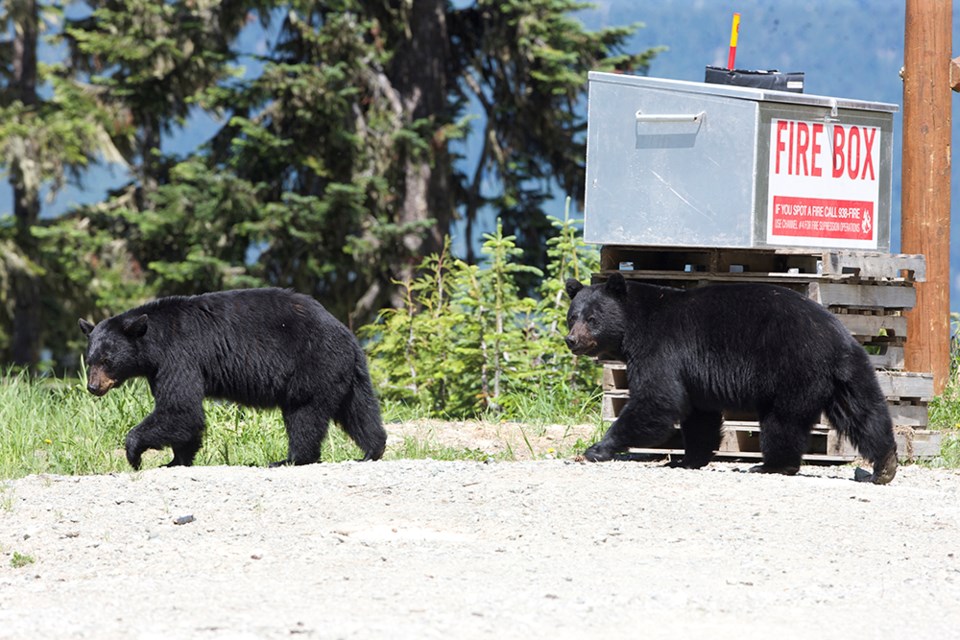The combination of temperature highs and lack of rainfall might cause our local bear population to really feel the heat this year, says Michael Allen, a local bear expert.
Allen runs guided bear tours in Whistler and has been studying bears there for 22 years.
In 2010 he moved to Paradise Valley and expanded his research to include bears on the Squamish and Cheakamus Rivers, along with the creeks and tributaries feeding into them. And, more recently, he began researching wolves and bobcats.
“This could be really tough for our local black bears. Not so much with the fire but with the heat,” he said.
“As the creeks dry out, there’s less water, so there’s a huge amount of bear activity near water right now. Almost every bear is going to water every day when it’s this dry. It’s just brittle up there. Vegetation is just having the moisture sucked right out of it.
“Any creek that is running, or rivers… you have to be careful. Especially if you have dogs,” he warned. “You could also see bears near irrigated areas like lawns and golf courses.”
This year’s berry harvest also worries him.
“The berry crop is all over the place. Some areas are good, but some aren’t,” he said, explaining that plants bloomed early in the heat, but continuing high temperatures and lack of rainfall have damaged the flowers.
“There are big pockets, big widespread areas where there are no berries at all. So I think September is going to be really bad. Even if we get a lot of rain, the damage has been done. You’re probably looking at a berry crop that’s about 60 per cent right now,” he said.
“And if we get even less rain throughout the rest of July into August, you could be looking at a total crash of the fall berry crop. It’s not looking very good,” he said, explaining that even though there may be plenty of green berries on the plants right now, they’re won’t be able to survive the next three or four weeks if there is no rain.
“The plant will stress. It will be fine, but it just cuts its berry production – that’s just how it adapts.”
He anticipates these factors may lead to increased conflicts between bears and force them closer to people – something they would rather avoid, he said.
For his research, Allen captures the majority of bear activity with mounted cameras at night while they’re fishing in the creeks.
But with the creeks drying up, the main body of spawning salmon will likely be found in rivers this year rather than further upstream, he says, bringing the bears away from their preferred fishing grounds. On the positive side, they’ll be able to add pink salmon to their diet, which only run on odd years.
All of this will unfortunately do little to help bear numbers in Whistler and Squamish, where populations have been declining in recent years due to a combination of hunters taking the big male bears, poor berry crops, low salmon runs and natural mortality. But bears are tough, said Allen, who believes he’ll know more about the impact of this summer in just a few months.
Allen was speaking at Squamish Library on July 9, and will be returning on Aug. 13 from 7 to 8 p.m. to discuss the topic, Whistler Bears after 20 years.
To view some of his videos and research on bears, visit www.michaelallenbearreports.tumblr.com.



